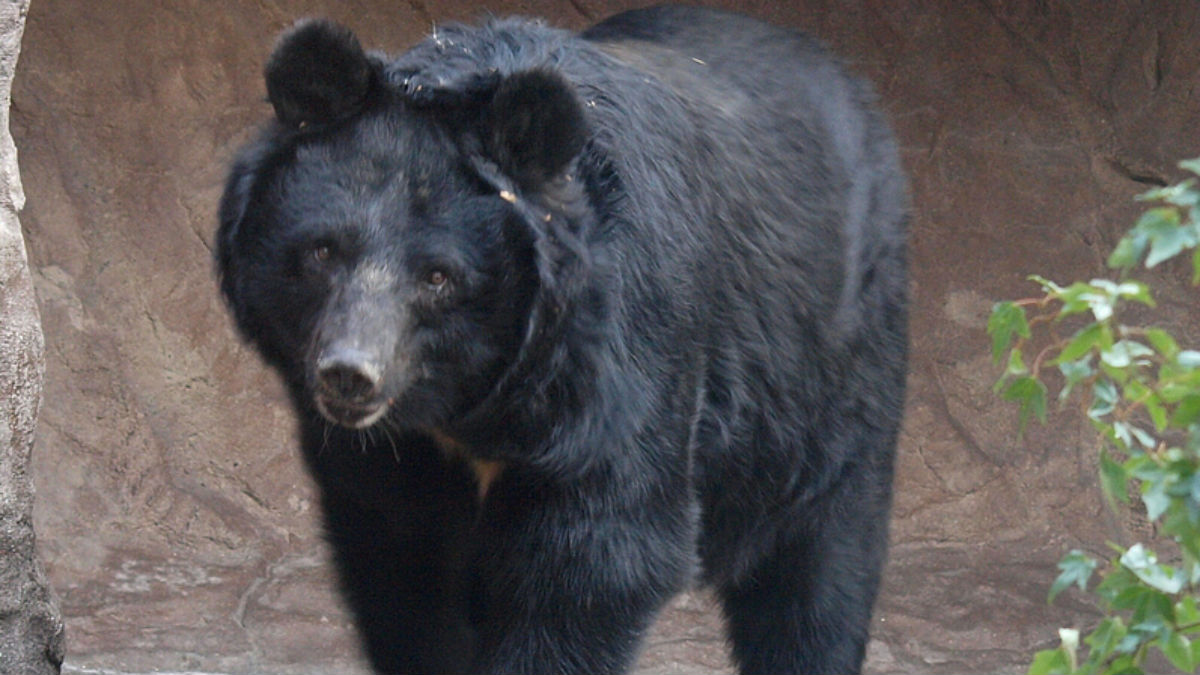Bear attacks: Warnings issued after four people are killed in Japan
Officials fear separate attacks may be work of a single animal with 'taste for human flesh'

A free daily email with the biggest news stories of the day – and the best features from TheWeek.com
You are now subscribed
Your newsletter sign-up was successful
A 74-year-old woman is believed to be the fourth person to have been mauled to death by a bear in as many weeks in northern Japan.
Tsuwa Suzuki's body was discovered in a forest in the mountainous Akita prefecture, where she had gone to gather wild plants. Her injuries were so horrific that authorities were initially unable to identify her body.
On the same day, a local hunter shot and killed a female black bear just 65ft away from where the body was found, the Asahi Shimbun newspaper reports. It is not known if this was the animal responsible for the attack.
The Week
Escape your echo chamber. Get the facts behind the news, plus analysis from multiple perspectives.

Sign up for The Week's Free Newsletters
From our morning news briefing to a weekly Good News Newsletter, get the best of The Week delivered directly to your inbox.
From our morning news briefing to a weekly Good News Newsletter, get the best of The Week delivered directly to your inbox.
It is the fourth such death in the area since 21 May. Three men, two in their seventies and one in his sixties, have also been found dead with severe injuries consistent with a bear attack after going into the forest to gather wild plants.
Officials warn would-be foragers to stay away from the woodland and to carry a bell to scare off any nearby bears.
Local vet Takeshi Komatsu believes the incidents may be the work of a single animal.
"After tasting human flesh, the bear may have realised that it can eat them," he told Kyodo news agency.
A free daily email with the biggest news stories of the day – and the best features from TheWeek.com
The spate of attacks is particularly unusual given that there were only eight bear-related deaths recorded in the area between 1979 and 2015, The Independent reports.
More than 1,200 brown bear and black Asiatic bear sightings have been recorded in northern Japan this year, already almost double the total spotted in 2015. Some of the sightings occurred in residential areas.
Bears often become more aggressive and bold when food is scarce, but experts say an abundance of supplies might be at the root of the apparent rise in the bear population.
Kazuhiko Maita, the chief director of the Institute for Asiatic Black Bear Research and Preservation, says a bumper crop of beechnuts, a favourite of the black bear, is likely to have led to a boom in the number of surviving cubs.
-
 Local elections 2026: where are they and who is expected to win?
Local elections 2026: where are they and who is expected to win?The Explainer Labour is braced for heavy losses and U-turn on postponing some council elections hasn’t helped the party’s prospects
-
 6 of the world’s most accessible destinations
6 of the world’s most accessible destinationsThe Week Recommends Experience all of Berlin, Singapore and Sydney
-
 How the FCC’s ‘equal time’ rule works
How the FCC’s ‘equal time’ rule worksIn the Spotlight The law is at the heart of the Colbert-CBS conflict
-
 Epstein files topple law CEO, roil UK government
Epstein files topple law CEO, roil UK governmentSpeed Read Peter Mandelson, Britain’s former ambassador to the US, is caught up in the scandal
-
 Iran and US prepare to meet after skirmishes
Iran and US prepare to meet after skirmishesSpeed Read The incident comes amid heightened tensions in the Middle East
-
 Israel retrieves final hostage’s body from Gaza
Israel retrieves final hostage’s body from GazaSpeed Read The 24-year-old police officer was killed during the initial Hamas attack
-
 China’s Xi targets top general in growing purge
China’s Xi targets top general in growing purgeSpeed Read Zhang Youxia is being investigated over ‘grave violations’ of the law
-
 Panama and Canada are negotiating over a crucial copper mine
Panama and Canada are negotiating over a crucial copper mineIn the Spotlight Panama is set to make a final decision on the mine this summer
-
 Why Greenland’s natural resources are nearly impossible to mine
Why Greenland’s natural resources are nearly impossible to mineThe Explainer The country’s natural landscape makes the task extremely difficult
-
 Iran cuts internet as protests escalate
Iran cuts internet as protests escalateSpeed Reada Government buildings across the country have been set on fire
-
 US nabs ‘shadow’ tanker claimed by Russia
US nabs ‘shadow’ tanker claimed by RussiaSpeed Read The ship was one of two vessels seized by the US military